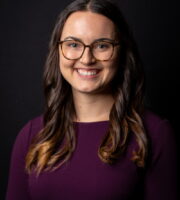
Research funded by Buffett Institute for Global Affairs
Universities are working on ways to incorporate gender equity and inclusion into foreign language learning across the country, including one project funded by billionaire Warren Buffett’s sister.
At Northwestern University in Illinois, researchers with the Language Curricula and Gender working group are focused on addressing inclusivity and gender equity issues in foreign language courses and curriculum.
“The ultimate goal is to produce supplementary teaching material with a critical pedagogical approach that would make our language curricula gender bias-free and inclusive,” co-lead researcher Rana Raddawi told The College Fix in an email.
Raddawi, an associate professor of Arabic instruction, said the working group hopes their research will make an impact on language classes not just at Northwestern but across the whole world.
“If we want to make any change in society, it should start with education,” Raddawi told The Fix. “Language teaching can be a powerful tool in equally presenting genders, gender roles, and gender identity be it through texts or visuals because language is based on communication.”
The working group at Northwestern is funded by the Buffett Institute for Global Affairs, named after alumna Roberta Buffett Elliott who donated $100 million for its creation in 2015, according to the university news. Buffett Elliott is the sister of billionaire Warren Buffett, currently the sixth richest American, Forbes reports.
Marcelo Worsley, the co-lead researcher on the project and associate professor of computer science, did not respond to requests for comment from The Fix.
“It’s not inclusive to have a class and now be told, ‘Sorry, you have to choose between one of these pronouns,’” Worsley told The Daily Northwestern student newspaper in October. “How do we make sure especially our LGBTQ+ students are feeling included in these language classes?”
At least one other university already is incorporating some of these ideas into language courses.
Susquehanna University, a private institution in Pennsylvania, offered a class this fall on “Diversity, Politics, and Social Factors” for English Learners in Education. According to the fall course catalog, “Learning a language is not a politically neutral enterprise: Issues of power are related to who is encouraged to learn a language and who is prevented from accessing linguistic resources.”
In an email to The Fix, Annemieke Stassel, class instructor and adjunct professor for the English Language Learners Program, said students are taught how languages influence “the classroom culture, climate and pedagogy.”
Language learning “is not a politically neutral system as there are myriad influences from policies to schools, to teachers, families, and students” that can affect how a new language is learned, Stassel told The Fix.
Giancarlo Canaparo, senior legal fellow at The Heritage Foundation’s Edwin Meese III Center for Legal and Judicial Studies, told The Fix that the DEI ideology is seeping into every area of higher education.
“No field of study is free from the oppressor-oppressed narrative these days,” Canaparo said via email.
“Those who buy into it, rightly see language as a key source of power because if you can control what people can and cannot say, you can influence what they will and will not think,” Canaparo told The College Fix.
At Northwestern, Spanish and Portuguese Professor Shannon Millikin, who is involved in the Language Curricula and Gender working group, admitted to the student newspaper that there are challenges to their work.
In Spanish, for example, Millikin said gender neutrality is difficult, noting “the use of an ‘e’ at the end of a word, like ‘Latine,’ is more prevalent in academia than in the broader Spanish-speaking community,” according to the newspaper.
“You can’t control language,” Millikin said. “Language is a living, evolving thing used by millions and millions of people.”
Moving forward, Heritage’s Canaparo said he anticipates that the greatest legal battles related to DEI will occur in the employment context. However, he said he expects “the ideology that motivates DEI to dig in on college campuses.”
“As campus radicals feel that their ideology is under attack, I expect them to be more radical and recalcitrant on campuses where they can isolate themselves from contrary voices,” he told The Fix.
IMAGE: Buffett Institute for Global Affairs/Northwestern University
Like The College Fix on Facebook / Follow us on Twitter






Please join the conversation about our stories on Facebook, Twitter, Instagram, Reddit, MeWe, Rumble, Gab, Minds and Gettr.